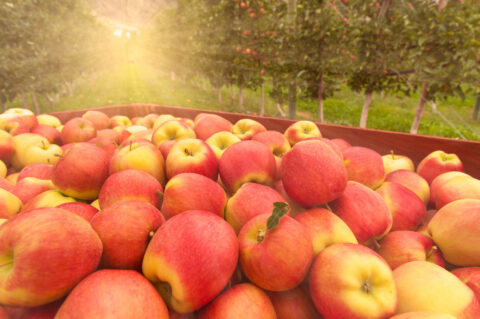Financial Mail Women
Fertile Ground For Women In Agriculture To Make Their Mark
The term gender equality is often used without giving much thought to the practical aspects of addressing this very complex and systemic issue, especially when considering how differently they can play out across various sectors of society.
According to the World Economic Forum, the global gender gap was closed by 68.1 per cent in 2022, which sounds impressive. However, it notes that at the current rate of progress, it will still take 132 years to reach full parity. Understandably, there is no one-size-fits-all solution to achieving gender equality across the board. That gender equality is number five on the list of the United Nations’ 17 Sustainable Development Goals shows the global commitment towards striving for a better, more inclusive and sustainable way of life for all.
As we make headway in achieving these goals, agriculture is proving to be fertile ground for female participation, with an average post-COVID-19 real output growth rate of 2.2 per cent, according to Dr David Fowkes from the South African Reserve Bank, outshining other sectors such as mining and manufacturing.
So many opportunities
Agriculture consists of much more than traditional farming. While female farmers are making their mark in the world of agriculture, the avenues available to women with an interest in the sector are vast, ranging from science, academia and research to business, communications and policymaking. As varied as these opportunities are within agriculture, there are definite similarities in the opinions shared by some of these women when asked what it takes to make their way in what is traditionally considered a “man’s world”.
Michelle Lesur, CEO of Andermatt Madumbi, a company developing biological solutions for farmers, agrees that women are making their mark in numerous areas related to agriculture. This includes academia, where new biotechnology is being created, in commerce and retail, or on farms at the heart of sustainable food production.
She is inspired to see more and more women coming to the table as valuable contributors to the conversations, offering new ideas and innovative thinking. She is also excited to see the increase in the number of women choosing agriculture as a career and having a powerful impact in their specific areas of influence. “We are seeing this a lot in the biologicals industry specifically, where change on all fronts is being driven. In my opinion, driving this kind of change across industry requires a female touch, a healthy dose of grit and bold leadership.”
Lindi Botha, chairperson of the Agricultural Writers of South Africa, a body representing communication professionals in the agricultural sector, says that not only has there been an increase in female farmers, but there is also a host of careers within agriculture being followed by women.
“As farming becomes more specialised, opportunities for a diverse range of careers are creating a space into which women can move. This includes public relations specialists, entomologists, IT programmers, spatial planners and human resources,” Botha explains.
An interesting opportunity for women that combines the drive towards sustainability with a business mind and can-do attitude is pesticide container collection and recycling. The container management programme of CropLife South Africa ensures that nearly 80 per cent of empty plastic pesticide containers used on farms are collected and recycled. Five years ago there were no female service providers, today there are over 50.
Annelize Crosby, head of legal intelligence at the Agricultural Business Chamber (Agbiz), adds that there have already been significant strides, noting that the former minister of agriculture, land reform and rural development, Thoko Didiza, is a woman, and there has also been at least one previous female director general in the department.
Dr Samira Amellal, director general of CropLife Africa Middle East, agrees that female leaders are making their way in agriculture by showing their special skills, viewpoints and strong determination. She adds that education plays a vital role in helping women enter the agricultural world.
“I began my professional career in research, which encouraged me to explore the possibilities of science and innovation in agriculture and agricultural production, aiming to bring prosperity to communities in this sector. I then transitioned into the private sector and industry, hoping to make a difference and contribute to the enhancement of agriculture and the economy in Africa and the Middle East.”
Advice from the experienced
The advice from these female leaders to young women wanting to follow suit combines a few key elements, which can be summarised as having self-confidence, passion, perseverance, and putting in the hard work.
“The path to professional success is typically filled with obstacles and may lead us to question our decisions, making it important to persevere. Above all, believe in yourself and your convictions. Women should trust themselves and the process,” advises Dr Amellal.
Botha agrees, reiterating: “If you own your space with confidence (not arrogance), engage sincerely to learn and demonstrate that you can be trusted, the playing field is quickly levelled between men and women, and there is no reason for a woman to stand back.”
She says when working as media in a specialised space such as agriculture, no one has all the knowledge, all the time. She recommends asking until the subject matter is clear rather than refraining from asking questions for fear of exposing a knowledge gap. “Not only do you then add to your knowledge, but you can explain it better to your readers.”
Mentorship from other women in senior positions in the industry is paramount, agree Crosby and Lesur. “All women need mentors and inspirational wing women,” Lesur comments. “Personal mastery programmes, such as Arbinger South Africa, which has benefitted me as a leader, are plentiful. Women in agriculture need to be committed to investing in themselves and their communities continuously. A rising tide lifts all boats.”
Dr Amellal adds that networking opportunities can significantly enhance gender equality. “I believe in encouraging female CEOs to create opportunities and open doors for younger women; everyone deserves a chance to learn and grow. Experienced women must support and mentor younger women entering the field, fostering a culture of growth and empowerment.”
Agriculture remains a vibrant, growing sector with continuous innovations and technology coming to the fore, ensuring the people of our planet have enough food to eat, while improving production practices to safeguard the environment. Food is a basic human need, which is why most tend to have a strong emotional connection to it, and why women are perfectly positioned to take up the various opportunities the industry has to offer.






 Sign-up and receive the Business Media MAGS newsletter OR SA Mining newsletter straight to your inbox.
Sign-up and receive the Business Media MAGS newsletter OR SA Mining newsletter straight to your inbox.